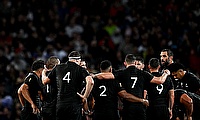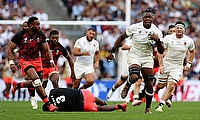An Expanded U20s Rugby Championship
The World Rugby U20 Championship kicked off in Italy last week and we have been rewarded with not only a feast of entertaining rugby, but also a glimpse at the superstars of tomorrow.
Formerly known as the Junior World Championship, the tournament brings together the best age-grade teams in the world for three weeks of high-octane rugby, starting with three four-team pools, before progressing onto the knockout rounds.
With just four teams in each pool, there is little to no room for mistakes, and whilst this is arguably quite beneficial to the development of these players, there is a strong case to be made that increasing the size of the tournament would not only make it more compelling, but also help the development of the game globally.
As stands, there is an annual turnover in the teams, as the lowest-ranked team at the conclusion of the tournament is relegated to the Junior World Trophy, with the winner of that competition taking the relegated team’s place in the Championship.
Last year’s Trophy winners, Japan, have enjoyed a torrid start to their first Championship campaign since 2009, opening with a 59-7 loss to reigning champions England, and followed that up with a 47-7 loss to France. The system of promotion and relegation between these tournaments is a slightly flawed concept, as often the majority of the side which earns its nation promotion has graduated to senior rugby by the time of the next tournament, potentially leaving an inexperienced group the daunting prospect of taking on the world’s best.
That said, the duo of Kosuke Horikoshi and Tevita Tatafu have excelled themselves in the opening two rounds of the tournament and illustrate that the potential is there for Japan to compete at this level, but only with continued exposure to the top age-grade competition.
Furthermore, Japan were only trailing France 14-7 at the half of their match, but the conditioning and depth of quality was just not there for them to maintain it for the entire 80 minutes. Again, both of these factors could be remedied by annually going up against the best in the world.
The Junior World Trophy is a fine tournament in itself, but the difference in quality to the Championship is stark, and it’s a chasm which is in danger of growing and leaving emerging nations such as Japan, Canada and Georgia an unassailable assent to be competitive with the more established rugby-playing nations.
This year’s Trophy winners are Georgia, who will likely take the place of Japan in next year’s Championship, but as with the side from the Far East, they face the prospect of being a yoyo team between the tournaments, unable to maintain the continued presence in the Championship required to take the next step in their development.
One way of avoiding this would be to increase the size of the Championship by three, adding a team to each pool and bringing in a promotion/relegation playoff between the bottom side of the Championship and the winners of the Trophy. To give this context, if these changes were adopted, it would see Georgia, Canada and Uruguay added to the Championship next season, whilst Japan would retain their place in the tournament.
Between Japan, Georgia, Canada and Uruguay, you have four nations with incredible potential within the sport and having their age-grade players go head-to-head with emerging stars who have already graced the Aviva Premiership, Guinness Pro 12 and Super Rugby, is one of the best ways to ensure their senior sides are competitive with the traditional rugby nations of Europe and Oceania.
Obviously this would detract significantly from the Trophy competition, but with nations such as the USA, Romania, Russia and Kenya not currently competing in a global age-grade competition, there are plenty of candidates to fill the empty slots in the Trophy.
The desire of World Rugby to grow the game commercially and at senior level in North America and the Far East is highly commendable, but it is through these age-grade sides that those nations will mould their senior sides, and improving their standing will be every bit as beneficial to these emerging nations as a one-off, high profile international or hosting a leg of the World Sevens Series.
With rugby likely to enjoy a significant global popularity boost after the upcoming Rugby World Cup, 2016 would be the perfect time to increase the World Rugby U20 Championship, with hosts England more than capable of providing the infrastructure to support it.








